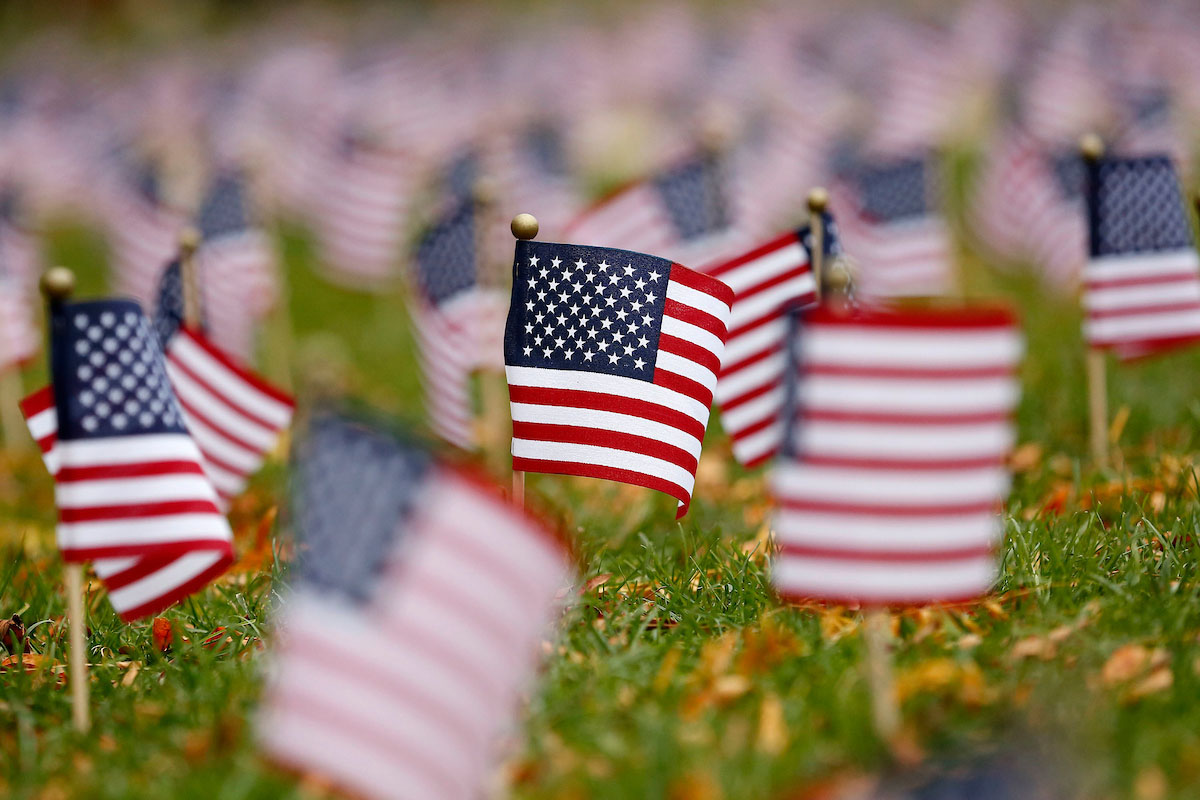 (DePaul University/Jamie Moncrief)
(DePaul University/Jamie Moncrief)
This Monday, May 31, marks our country's 50th Memorial Day, which President Lyndon B. Johnson signed into law on June 28, 1968, and took effect on January 1, 1971. It is an annual day of remembrance to honor all those who have died while serving in the United States military.
However, today many undervalue the true purpose of Memorial Day and instead designate it as the day marking the beginning of summer, hosting household barbeques and opening community pools. Allow me to shine some light on its history and the meaning it holds to our nation.
Memorial Day was initially referred to as Decoration Day in 1868, designated by John A. Logan, an American general, politician and author. Many communities observed it after the Civil War, when the nation suffered more than 620,000 military deaths, which was roughly 2 percent of the total population at the time.[1] This holiday differs from Veterans Day, which is a holiday to honor America's veterans and service members for their patriotism, love of country and willingness to serve and sacrifice for the common good.[2]
Memorial Day ceremonies often include parades, speaking events and the decorating of U.S. service members' graves with flowers or flags. In the days proceeded by the end of the Civil War, Union and Confederate soldiers' graves were decorated by their fellow service members and family. Some records show that a group of freed slaves in Charleston, S.C., organized one of the earliest Memorial Day commemorations less than a month after the Confederacy surrendered in 1865.
[3]
The custom of using Memorial Day to honor all American veterans who gave their lives in sacrifice to our nation did not become commonplace until after World War I. By the middle of the 20th century, it became routine for presidents to issue Memorial Day Proclamations to honor those who have given their lives on the field of battle. However, some people choose to honor all veterans who have passed, whether that death took place during a conflict or not.[4]
During these difficult times, it is very important to remember our past and how we have grown to become the most prosperous and powerful nation. We have discovered our faults and pursued their resolution to keep our citizens safe and free. However you choose to celebrate this Memorial Day, remember the selfless group of people who sacrificed their liberties and lives and did so to protect and defend the liberties we cherish today.
Riley Knox is a student in DePaul's College of Liberal Arts and Social Sciences, majoring in sociology. He served for 10 years in the U.S. Navy, beginning on the USS Boone (FFG-28) as a deck seaman in Florida, and then a junior quartermaster and a command essential surface rescue swimmer onboard the USS Momsen in Washington. Later, he served as a water survival instructor at Recruit Training Command in Great Lakes, IL, where he earned the rank and title of USN Chief Petty Officer. Riley is a member of the Class of 2021 and will graduate from DePaul this June.
[1] US Archives. 2020. "Memorial Day: A Commemoration."
National Archives. Retrieved March 25, 2021 (https://www.archives.gov/news/topics/memorial-day).
[2] US VA. 2015. "History of Veterans Day."
US Dept of Veterans Affairs. Retrieved March 25, 2021 (https://www.va.gov/opa/vetsday/vetdayhistory.asp).
[3] Anon. 2009. "Memorial Day."
HISTORY. Retrieved March 25, 2021 (https://www.history.com/topics/holidays/memorial-day-history).
[4] Blair, John. 2018. "The Nation's Sacrifice: The Origins And Evolution Of Memorial Day."
Prologue.blogs.archives.gov. Retrieved March 25, 2021 (https://prologue.blogs.archives.gov/2018/05/24/the-nations-sacrifice-the-origins-and-evolution-of-memorial-day/).